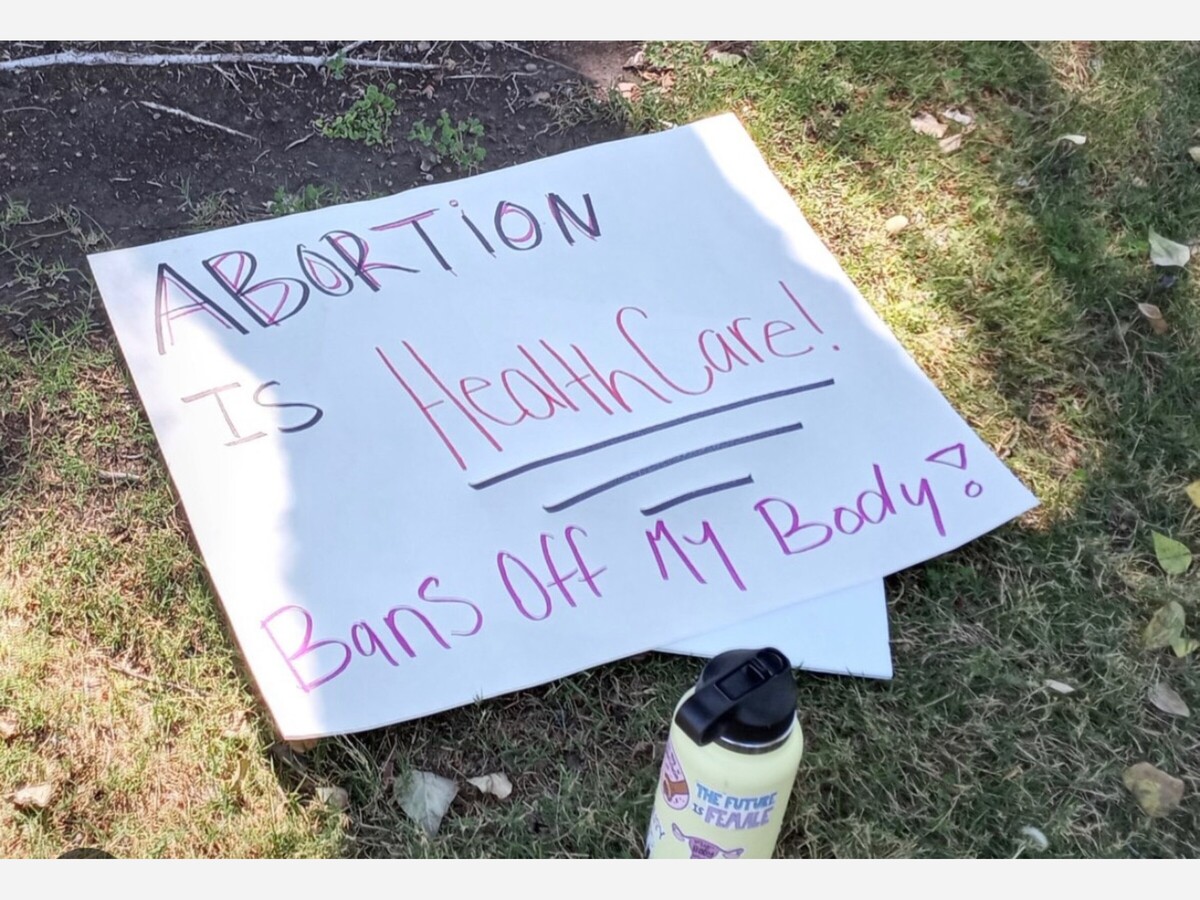Image


The New Mexico Supreme Court announced a December Hearing on the Anniversary month of the city of Alamogordo, and the Otero County Commission effort at political theater.
August of last year each, passed non-binding resolutions, that had no effect of law, in an effort to rally the base of newly appointed Alamogordo City Commissioner, Karl Melton and ensure the election of then candidate John Block
The effort was championed by Melton’s domestic partner, radicalized, then candidate for House District Representative 51, John Block.
The performance was pure political theater by these two individuals as the resolution had NO power of law.
The Alamogordo City Commission heard two abortion opposition resolutions during the special meeting held on August 2, 2022 declaring the city a 'sanctuary for the unborn' which supported a similar resolution passed by the Otero County Commission in July.
A small group of citizens led by Ashlie Myers, decided they would start a petition to gather signatures in hopes of forcing a special election to determine if the resolution should stand. The group gathered over 500 signatures and turned them in to the city clerk to verify.
The group attempting to overturn the resolution was led by a young lady battling cancer, named Ashlie Myers. She has had significant health issues, and yet, has championed access, one all the while receiving personal attacks from leaders within both political parties of Otero County, Republican and Democrat. She and the group faced huge pushback from conservative pundits, including John Block, a blogger and the GOP nominee at the time for state rep in Otero County. Block also attended the Jan. 6 Capitol riot but never faced charges. Block's partner Karl Melton was then recently appointed to a vacancy on the Alamogordo City Commission.
In an email sent out to supporters at the time in an attempt at political theater, Block said "The pro-abort radicals are likely going to show up in full force and try and intimidate the commissioners, spewing vicious personal attacks and tired anti-life talking points."
During the August 2 meeting Block with the support of Melton both made false claims that there are no medical reasons why a woman would ever need an abortion.
Access to abortion services is limited in Otero County and Alamogordo. According to the Guttmacher Institute, a reproductive rights advocacy organization, 91 percent of NM counties had "no clinics that provided abortions" in 2017, and 48 percent of New Mexico women lived in counties without clinics. Both of those percentages are higher than national averages despite Block's false claim that "NM taxpayers forked over a staggering amount for abortions in the past two years."
Just three of New Mexico's 33 counties statewide have clinics that provide abortion services: Bernalillo, Santa Fe and Doña Ana counties. Earlier this month, Governor Lujan Grisham pledged $10 million in state funds to open a reproductive health clinic that would also provide abortion access in Doña Ana County.
The efforts by Block and Melton were just pure theater, to create political points prior to Blocks November election. The resolutions had NO power of law.
A year since that divisive debate in Alamogordo, the New Mexico's Supreme Court announced it will hear oral arguments in December regarding a request to strike down recent abortion-ban ordinances in several cities and counties.
Alamogordo nor Otero County are not involved in this case, as they passed a meaningless resolution to stir their base, not an ordinance; as an ordinance was contrary to state law.
However, other cities had the the courage of their convictions to try to pass and ordinance unlike Block and Melton.
The high court on Tuesday announced it will hear arguments in December and agreed to consider legal briefings filed by an array of advocacy groups.
The state attorney general in January petitioned the high court to strike down abortion-ban ordinances approved by local governments spanning much of eastern New Mexico. Attorney General Raúl Torrez argued that the local laws violate state constitutional guarantees — including New Mexico's equal rights amendment that prohibits discrimination based on sex or being pregnant.
State abortion laws in New Mexico are among the most liberal in the country. But local governments in cities and counties where opposition to abortion runs deep have approved their own abortion restrictions, largely based on a 19th century U.S. law that prohibits the delivery of abortion supplies and medications.
Local abortion-ban ordinances dot the map of New Mexico from Edgewood on the outskirts of Albuquerque to Eunice near the Texas state line, also including Lea and Roosevelt counties, and the cities of Hobbs and Clovis. Most have been blocked by the New Mexico Supreme Court while it considers the challenge by the state's Democratic attorney general.
In 2021, the Legislature repealed a dormant 1969 statute that outlawed most abortion procedures as felonies, ensuring access to abortion even after the U.S. Supreme Court last year rolled back guarantees.
This year, Democratic Gov. Michelle Lujan Grisham signed two abortion-rights bills that override local ordinances aimed at limiting access and shield abortion providers from prosecution by out-of-state interests.
Opponents of the local abortion restrictions such as Planned Parenthood and the American College of Obstetricians and Gynecologists say the initiatives undermine uniform health care access and standards, especially pregnancy-related care in remote and impoverished communities.
Court briefings from anti-abortion groups including Family Policy Alliance assert that local governments have the right to enforce federal abortion restrictions.
The case will be heard December 2023. Count on more political theater from the Block/Melton duo who will be monitoring the New Mexico Supreme Court case and will use the platform for more theatrics as the case proceeds through the courtroom.